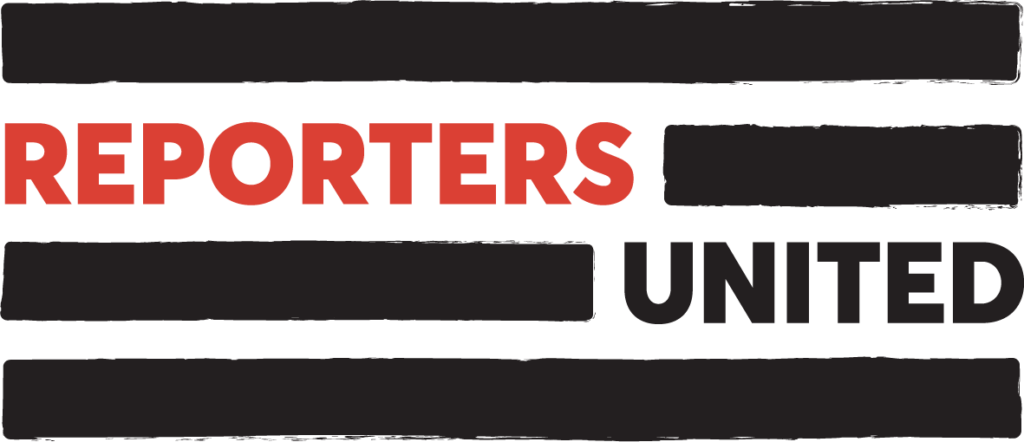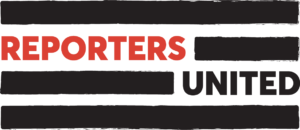Reporters United is a network of reporters aiming to support investigative journalism in Greece. It is a hub in a larger network with foreign journalists and international media. It is a platform for publishing stories which - for a variety of reasons - struggle to find a place elsewhere. Finally, it is a venue for experimentation, a laboratory for endeavours which in Greece are usually dismissed as naïve or futile but which we consider vital.
Reporters United has been registered as a Civil Non-Profit Company (AMKE) since 2019. Our Articles of Incorporation can be found here.
We chose to register as a Civil Non-Profit Company (rather than an Association or a Co-Op) because we believe this legal format best fits the nature of our project.
- R-U is a non-profit
- We are not interested in distributing profits among members
- It is not a closed project like a Co-Operative, but is open to all the investigative reporting community
- The AMKE format allows us to support ourselves sustainably through supplying services and content to cooperating media outlets, but also through fundraising
- We needed a functional and agile model when establishing R-U
At its establishment, R-U has two partners, Nikolas Leontopoulos and Christoforos Kasdaglis.
After an initial period of bedding-in, our aim is to experiment with different models of collective governance and ownership.
Different versions of the idea have been kicked about over time without ever materialising.
In 2011 we made the first attempt to found a journalistic organization with the same name, , but the endeavour foundered on bureaucracy.
In 2012 we started from a nucleus of five journalists - the idea belonged to Tassos Telloglou, and was implemented by Kostas Efimeros of ThePressProject, HarryKaranikas, Nikolas Leontopoulos and Jean Souliotis – to try and form an association of investigative journalists. Around 15 journalists ended up contributing to the project, however the discussions were inconclusive, largely because of personal differences among the participants (right-wing vs. left-wing, establishment vs. anti-establishment, pro-bailout vs. anti-bailout etc.).
During the Greek crisis, while the country was the focus of international media reporting, we believed that Reporters United could act as an agency connecting Greek journalists, photographers and videographers with foreign media outlets. Many of us collaborated on such work informally, sharing ideas, contacts, access to foreign outlets, fixing jobs.
This time around, we seem to be more successful than on previous attempts, dedicating time and resources to our legal incorporation, financial management, the development of web pages, partnerships with other organisations, global networking.
We picture Reporters United as comprising three circles:
Firstly, the Team which runs it. Our contributors to date include Nikolas Leontopoulos, Christoforos Kasdaglis, Georgia Nakou (editors); Stavros Malichudis (community editor); Thodoris Chondrogiannos, Myrto Boutsi, Eurydice Bersi, Corina Petridi (reporters); Sotiris Sideris (data analysis); George Sgouros (finance); Komninos Doulgeris (IT developer); Kostas Polatoglou (logo and web design); Alexia Barakou (animations, illustration), and lawyer Clio Papapantoleon (legal support).
The second circle is the Network which is made up of journalists supporting the project,, who have a number of rights and obligations (relating primarily to ethics and transparency). Look out for a list of participants coming soon.
Reporters United is not a closed system, in fact we aspire to be the broadest and most open journalist ecosystem in Greece. Let’s call this circle our Community.
There are two more circles we envisage: Partnerships, and our Advisory Board. More about them in later sections.
We set three main conditions:
- Members must be a professional reporter or photojournalist
- Members must not be a publisher or have an executive role at a major media outlet
- Members must not have a disqualifying conflict of interest (such as a professional relationship with a political party, major company, state body, etc.)
- Members must comply with R•U's principles concerning transparency and funding.
In our experience, conflicts of interest have not been adequately acknowledged or addressed as part of professional journalistic practice in Greece. It is central to the Reporters United project that we explicitly address this crucial ethical issue in a mature, active and conscious manner.
Our members and partners are obliged to provide information regarding potential conflicts of interest stemming from their political and economic ties. In practical terms, this means members and contributors:
- must not have any disqualifying conflicts of interest (a professional relationship with a political party, major company, state body or NGO)
- must disclose in their bio on the Reporters United site any potential conflict of interest
Our Conflicts of Interest policy will be under constant review in response to comments and debate with the membership and wider community of Reporters United.
Naturally. It is clear that we are trying to build a network, a community which will comprise professional journalists of all types, from journalists on the staff of media outlets to freelancers and unemployed reporters. In other words, participation in the community:
- Is not incompatible with working or contributing to an information medium
- Does not equate to responsibility for (or even knowledge of) reports produced or published by Reporters United.
The endeavour is open to any journalist, photographer and videographer, as long as they have none of the conflicts covered in the relevant section of the FAQ.
We do not believe in apolitical journalism or in absolute objectivity. As journalists we have political views and these are reflected in our choice of subjects, our reporting priorities, and where we choose to publish our work.
We do nevertheless believe in the possibility of coexistence and communication between journalists who hold different political views, and even more so in the necessity of this coexistence despite the challenges it brings. We would like the Reporters United community to express a broad pluralism with respect to political views, age, sex, professional status (freelancers, permanent staff, unemployed), nationality, and the format and genre of journalism that members practice.
It is, in the sense that it publishes journalistic content, but for us it is equally important to intervene on issues to do with education, collaboration, networking, and ethics in journalism. As you can see from our introductory note “What is Reporters United?”, most of our aims relate to issues of institutions, culture, technology, ethics and education.
In any case, our relationship with Greek media outlets is complex and contradictory:
Firstly, many members of our community work for media outlets as permanent staff or freelancers. It is clear that participation in Reporters United is in no way incompatible with having a professional relationship with a media outlet.
Secondly, media outlets, both Greek and foreign, are for us potential partners as end publishers. We will seek to publish our reporting with them, much as the Bureau of Investigative Journalism does in the UK, or collaborate on co-productions, as ProPublica does in the US.
Thirdly, on the other hand, we are all familiar with the limitation on independence faced by most media outlets in Greece, and the role they (or their owners) play in the country’s political and economic life. These issues fall well within the scope of our intended subject matter. In other words, the fact that media outlets are potential clients will not prevent us from publishing stories about them.
Yes - however, while this our main raison d’être it may take some time to produce a steady flow of content.
We propose to manage content in two ways, although we recognise that from the point of view of the public these two ways are not clearly distinct:
- Stories under the Reporters United banner
These are reports that will be published on the Reporters United platform, for which R•U assumes the responsibility of production and publication, often in collaboration with other media, Greek or international. These reports follow a conventional editorial process, in which R•U has an active role. Where possible, the publication will include primary sources such as documents, FOI requests, transcripts or audio of interviews, diaries etc.
- Articles by journalists in the R-U network published in their personal blogs within the R-U platform
Reporters United will not have any editorial role or intervention, and, correspondingly, the content of the publications will not bind Reporters United. We view the blogs as a platform for the exercise in freedom of expression and press freedom.
The writer of each blog takes full responsibility for their publications.
In extreme cases, if the editorial team deems that the published material contains inaccuracies, defamations or hate speech, it can refuse to publish it (it may make sense for such materials to be referred to the reporters in the network to deliberate and vote on whether to publish).
Reporters United and its reporters will also be given the opportunity to respond to published blogs, comment on it or express their disagreement.
In the final analysis, this is the price of exercising our freedom of speech.
It will be open.
Up until now, the endeavour has been self-funded, supplemented by revenue from collaborations with foreign media. Already in the first two years since the foundation of Reporters United, our collaborations with international media and networks have allowed us to cover a portion of our costs. We will keep searching for other sources of funding, while trying to maximise our revenues through collaborations.
At the back of our mind is the belief that an endeavour that can demonstrate its independence (see more on our strict funding guidelines below), while proving that it can produce strong journalism on difficult topics under any political administration, can find supporters willing to pay for its continued existence. Reporters United readers can support our endeavour through donations or voluntary subscriptions.
We would prefer to fail and close shop than to do something which resembles something which already exists or replicates the weaknesses we see in our space. We will either do something truly independent and transparent or we will do nothing at all.
In practice, this means excluding funding which comes from:
- The Greek state
- The private sector (including individual business people and businesses)
- Political parties
- Large foreign states (including the USA, China, Russia, Germany, the UK, France and any permanent members of the UN Security Council, as well as the European Commission)
- Greek charitable foundations with a dominant presence in the social, cultural and economic life of the country (namely the Stavros Niarchos Foundation and the Onassis Foundation)
- Foundations connected with large business interests in Greece (for example, the foundations linked to the Latsis, Vardinoyannis, Leventis, Laskaridis and Daskalopoulos families)
- Foreign foundations with a dominant role in social, cultural and economic life (for example, the Open Society Foundation)
- Foreign foundations with a direct or indirect relationship to large political parties (for example the Konrad-Adenauer-Stiftung). Regarding foundations linked to smaller political parties, Reporters United will decide on a case-by-case basis. This should not be construed as a loophole: in October 2020 we rejected one such opportunity on ethical grounds.
It goes without saying that independent investigative reporting funded by the State Department (or the Kremlin, the German Chancellery etc.), Coca-Cola or the Bill & Melinda Gates Foundation is inconceivable.
Many colleagues consider this approach futile. We believe that it is the only possible approach, the only path to true independence and sustainability.
Reporters United is our attempt to test our principles in practice, and we intend to pursue it with transparency and integrity. If the project fails, it will be an honest failure and it will leave its mark through truly independent journalism with real impact.
We MAY receive funding from:
- Foundations of the Greek diaspora
- Foreign foundations that support journalistic initiatives, provided they do not have ties to the governments of the major powers mentioned above
- Crowdfunding in Greece, among the Greek diaspora and other international sources
With regards to the Greek diaspora and other international sources, funders/sponsors must not have any business interests in Greece, ties to the Greek state, and professional activities that they are involved in must not have interests seriously affected by policies of the Greek state (e.g. the shipping sector).
It is hard to have complete transparency, especially in a multifaceted, collective project. It is not possible to police what any journalist does or what any entity like Reporters United does, and nor do we set out to do this. However, we can agree on some basic rules of transparency, where this pertains to the two dimensions of the problem, the transparency of Reporters United, and conflicts of interest:
- All donations above a certain threshold will be published, both in terms of the amount and the identity of the donor
- Publication of financial information (income, expenditure, source and size of funds)
- Obligation for journalists in the community to disclose potential conflicts of interest
Reporters United is a non-profit endeavour, meaning that by law it does not distribute profits to its partners. All potential profits are reinvested in the project.
Most of our contributors are paid. Indicatively, in 2020 at least 15 journalists and other contributors were paid for the work they contributed (reporting, production, fixing, filming etc.).
There is however a smaller group of people who contribute on a voluntary basis.
Our legal advisors and the members of our Advisory Committee all contribute on a pro bono basis.
It is our strategic choice to build partnerships with organisations outside the sphere of traditional journalism, both in Greece and abroad, as the demands and challenges of journalism today extend way beyond the skills of a traditional reporter.
Our partnerships are always formed with the aim of delivering a particular project – for example digital security workshops with the Open Technologies Alliance, FOI seminars with Vouliwatch and Open Technologies Alliance, Whistleblower Meter with Whistleblowing International Network, and others.
Working in partnership with an organisation does not automatically mean that Reporters United accepts and adopts all views and actions of that organisation. Accordingly, the organisations with which we partner are not bound by the same strict funding policies as Reporters United.
The list of partner organisations will continue to grow, but below is an indicative list to date:
- In Greece: Open Technologies Alliance, Vouliwatch, HomoDigitalis, The Manifold, Romatso.
- Global: Investigate Europe, Arena for Journalism, Whistleblowing International Network, The Black Sea, Centre for Investigative Journalism, Algorithm Watch, The Outlaw Ocean.
The role of our advisory board is not decorative as is often the case which such bodies. Its members, both journalists and non-journalists, help with the evolution of Reporters United by giving advice and help around issues in which they have specific knowledge. Their contribution has already been crucial for the creation of the endeavour.
To date our Advisory Committee has included the journalists Brigitte Alfter (Arena for Journalism / DataHarvest), Stefan Candea (co-founder and coordinator of EIC), Stéphane Horel (Le Monde) and Ian Urbina (New York Times / The Outlaw Ocean). Over the coming period we will formalise our relationship with other people who have been helping us with our endeavour on a more informal basis.
Hmm, let’s call it an office for now. Our small office is located at Romantso, Anaxagora 3, 10552 Athens, close to Omonia Square.
We believe that not all journalistic activities can be online or digital. Although we do not set out to create a new Frontline Club, it is central to our vision that the Romantso venue can become a physical meeting place for journalists, both among themselves and with the wider public. With the valuable support of the people at Romantso we have been using the space to:
- Hold meetings of our “community”
- Conduct seminars and workshops
- Organise public events
Greekleaks is the first platform for whistleblowers in Greece. It is an online environment which offers citizens the opportunity to communicate safely and provide materials (documents, video, audio, photos) or information in a secure environment to Reporters United or the journalists of their choice from within the Reporters United Network. The Greekleaks platform is currently in the test stage, and will be made available shortly.




